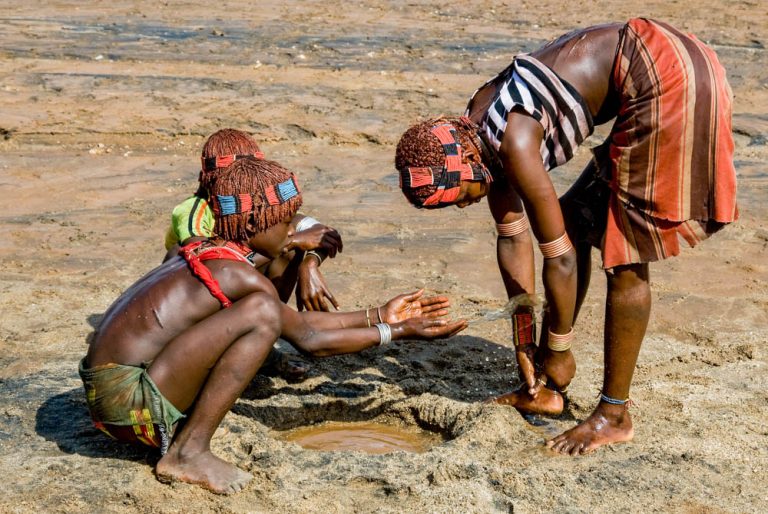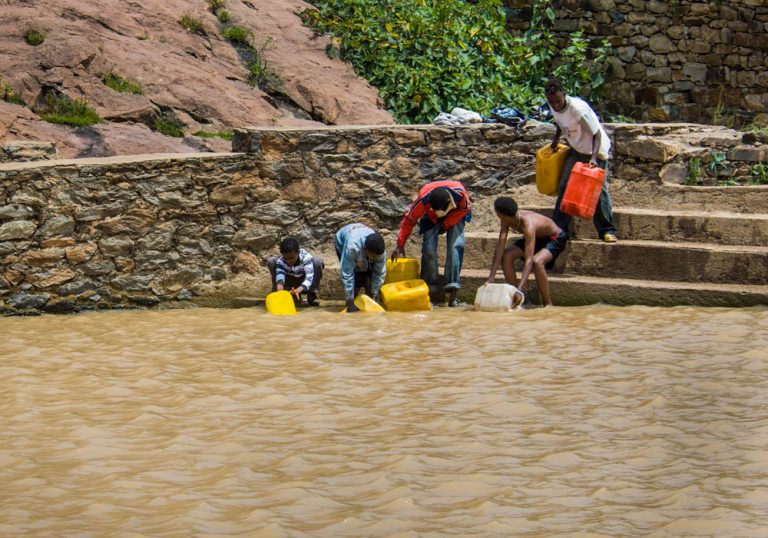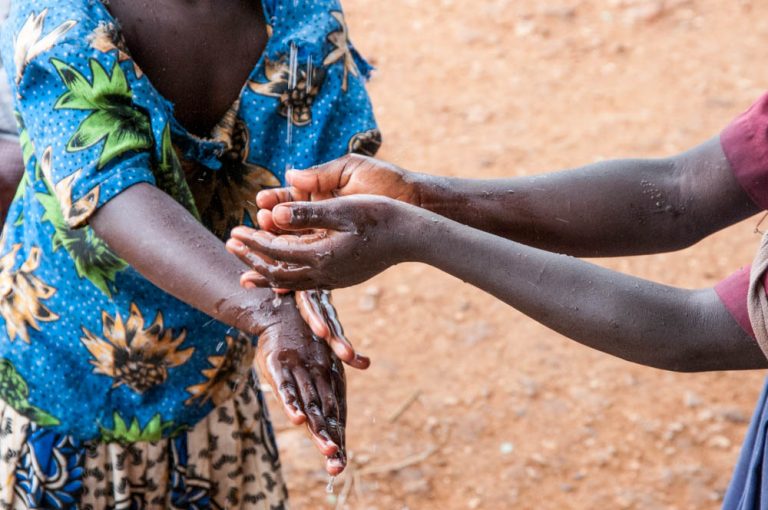Transboundary Issues on the Nile
Nile River Basin
|
NEW ESRI StoryMaps: What's On Our Shelves & NWNL Song Library & No Water No Life ESRI |
Nile River Basin
Semu Moges Moges
Dean of Graduate Students, at Water Technology Institute
Alison M. Jones
NWNL Director and Photographer
All images © Alison M. Jones. All rights reserved.
I hope the whole world will give attention to the Nile, one of the most contested resources of the world. On the economies of water resource, we can negotiate. But not on the basic needs of water. –Semu Moges, Ph. D: Dean, Arba Minch Water Technology Institute
As Dean of School of Histories, Dr Moges teaches various courses for groups at the Water Technologies Institute. He also advises most of the students in the Institute’s MSE Program (on Materials, Sciences, Engineering). NWNL was fortunate to have a chance to hear his articulation of Ethiopia.
NWNL I know you have much on your mind to share. So, I am looking forward to the privilege of being one of your “students” this afternoon to learn more about cooperation needed to meet water resource needs.
DR. SEMU MOGES We have produced fantastic results in this MSE (Materials, Sciences, Engineering) program as we study how Ethiopia could somehow get greater depth of knowledge concerning the water resources it needs. Most of our research is focused on two of your No Water No Life case study watersheds – the Nile Basin (especially the Blue Nile Basin part of Ethiopia) the Omo River Basin, and the Rift Valley Lakes, so I welcome you to my office for this conversation.
NWNL Thank you. I look forward to hearing your take on both existing and evolving balances regarding management of the Omo and Nile Rivers’ water resources needed for Ethiopians.
DR. SEMU MOGES The most important watershed challenge Ethiopia faces is that 90% of our rivers are transboundary. As well, rainfall in Ethiopia is very erratic. Ethiopia’s economy is highly linked to the average of rainfall. More rainfall means good production.

This indicates our need for storage via construction of dams, whether they are traditional or more of the storage types. It’s very important to sustain life in this part of the world. Therefore, as population increases, the challenge is to feed this population. We need also to improve irrigation to ensure intense food production. Irrigation is on the tail end of this curve.
We also have to start protecting land from population increase and animal degradation of land. Degradation of land impacts a society. If we cannot utilize our water wisely, our society will find itself in a difficult situation for the coming decades. That is why the water supply has to equalize with numbers of people.
Society in this part of the world is in precarious situation. We are not allowed to use the water resources in the Blue Nile River Basin because of its transboundary nature. Thus, actors and directors must play the role of teaching people in this part of the world that they should not waste food or water.

I am particularly dismayed by United States of America’s regard of Ethiopia’s type of government. Ethiopia is a pro-Western society and has always been a strategic ally. In that respect, the United States, in leading the world’s Western allies, should continue to build trust and confidence between the Nile Basin’s barren countries, as well as facilitate utilization of water resources through scientific means, plus financial resources. As you know, the United States has been the most proactive in all of the allied countries in the world, not only in water resources, as well as in martial law.
We are particularly dismayed that the United States is not even part of the Nile Basin Consortium. I feel that the moment the United States steps into the Nile issue, we hope we can see light at the end of the tunnel, because United States is a country with many water-resource scientists.
Freshwater should be an unlimited resource. I’m dismayed, because our limited fresh water supply is degraded by environmental conditions. Yet our population, that is dependent on this finite amount of water, is increasing. Ethiopia’s freshwater resource, a local necessity, is simultaneously an international transboundary resource.

In that respect, we have to pay attention to this issue and focus on freshwater availability across the world. To get fresh water is a challenge, if it’s not in our area. People who are living in areas with fresh water should have access to that water in their area, in However, Ethiopia’s water resource is treated as a global resource.
Despite water being a global resource, individual people should have the right to get needed amounts of food, drinking water, and basic services. No individual should be ignored in the equalization of our resources. As I said, that is why we do not have international conventions that are agreed upon by other nations.
Young girls spend hours each day retrieving water from the Masarua Dam Reservoir of the White Nile River Basin in Tanzania.
We have only declarations and statements. Therefore, one of my messages to the world is that everything is linked to water. We should be pay attention to water availability in poor countries, as well as generally. Therefore, water is a distinct and dismaying issue in the Nile Basin, because the Nile Basin countries’ vision for the future is not very well articulated.
For example, everybody is fighting for major water resources to produce food from limited water resources. But we should have a vision that says, “Okay, a country with agricultural potential should produce vegetables and farming; others should go for industry.” If you think of Egypt, I don’t think the people want to stay farmers after fifty years. They might want to move to an industrial society. Then they might come to terms with, “Oh, everybody doesn’t want to farm.” That could be the time that other upstream countries vigorously go into agriculture.

We need a vision that is concise. Upstream and downstream countries could agree, “Okay, we can send our food to them and they can send their industry and products to us.” In another respect, perhaps we could unlock water in the deserts of Egypt, Sudan or even Ethiopia – I don’t know. In that case, we could benefit from their derived shares of that water. Therefore, I do not think it right to have an antiquated statement as the vision for the Nile Basin.
We have a vision that says utilization of water resources from the Nile is for the people of the Nile; but that has to be translated into an action. What does “equality utilization” mean? Does it mean sharing equally the water? What do we mean? It is subjective – but is that right? In this case, we do not have a firm statement qualifying “equality utilization of water resources.” What is sustainable in the long term? In that respect, the seriousness of the water resources for the Nile Basin countries is derived from population projects and the limited resources. On paper, we are looking at the Nile Basin population changing from 60 million people to 600 million.
[Editor’s Update: In 2017, Water Resources Atlas estimated total population of Nile Basin countries at 487.3 million, with Ethiopia having the highest population at 99.4 million, closely followed by Egypt at 91.5 million].
I believe the Nile countries should be very focused on the future. Downstream countries like Egypt should have a very long strategy for looking for water resources lost in their desserts. Countries upstream, like Ethiopia, should be able to understand that we can store water for our own populations. There has to be a seriousness within the Nile countries so that we can move forward. We should not just keep on talking and talking without resolving anything. We should come to a common ground, bring up issues and then finalize decisions. People should start living in a state of survival.
Therefore, this is my message: I hope the whole world – from the United States to the Nile Basin – will give their attention to the Nile River’s resources. One of the most contested resources of the world is the Nile, and I just hope its resources are enough. We face a problem of how to achieve good strategies, and a problem of trust and understanding.
Currently we are not projecting trust nor honesty. We are only showing our positions. Ethiopia says, “This is my position.” Egypt says, “This is my position.” But we should go beyond that, because the problem is beyond that. The problem is survival as a human question, representing human life in Ethiopia and other countries like Sudan that are not yet self-sufficient.

Therefore, we must address water resource issues at the human level. We must boil down our approach to quantifying first and foremost that water be supplied for basic human needs. Only by defining water as a basic need, can we then go to the next level of resolving issues of water availability. Water availability supports the basic needs for drinking water, for food, for sanitation and for basic goods and services.
Once we come to realize that water resources supply basic needs and economies, then we can negotiate. But we cannot negotiate basic needs. Every individual Egyptian faces the basic needs of water. Every Sudanese faces the basic needs of water. Every Ethiopian and every Tanzanian faces those needs. Therefore, water is beyond being a commodity. My family has to drink, my animals need to drink, and I have to feed them.
These basic needs are what you might also call “water for life.” In that respect, if we differentiate needs, come to our senses, and hopefully become serious, our water supply could be a catalyst for development, cooperation and collaboration. Maybe in the long run we end up uniting our federal states; perhaps called the Confederation of Nile Basin Countries.
There is enormous opportunity if our understanding evolves in that direction. There is enormous opportunity because if we come to that point, we would have to develop our infrastructure. We would have to start creating things. The water issue might even decrease as a topic of dispute. Water could be a catalyst for community development in this region. Water is an important compliment of life.

So, in that respect, my mission and message of hope is: “Water is life.” This declaration should be the basic premise of the International Consortium for Cooperation of Nile Basin [ICCON].
[Editor’s Note: In 2001, the International Consortium for Cooperation on the Nile (ICCON) met in Geneva, convening both the Nile Basin governments and their international development partners who pledged to support the Nile cooperation. After the ten donors actualized their pledges, the Nile Basin Trust Fund was established in 2003. — Nile Basin Initiative’s “Current Status and Future Projects” Report]
NWNL Is the US a member of that organization?
DR. SEMU MOGES ICCON includes huge donors who contribute to these Nile projects; but the US is not a part of that. This organization seeks a strategy for Nile Basin countries; and I think US involvement in this matter could somehow bring this issue to attention of the world.
NWNL Dean Moges, I sincerely hope your vision of transboundary cooperation and solutions evolves quickly. Thank you so much for your thoughtful observations.
Posted by NWNL on March 20, 2020.
Transcription edited and condensed for clarity by Alison M. Jones.
All images © Alison M. Jones. All rights reserved.
